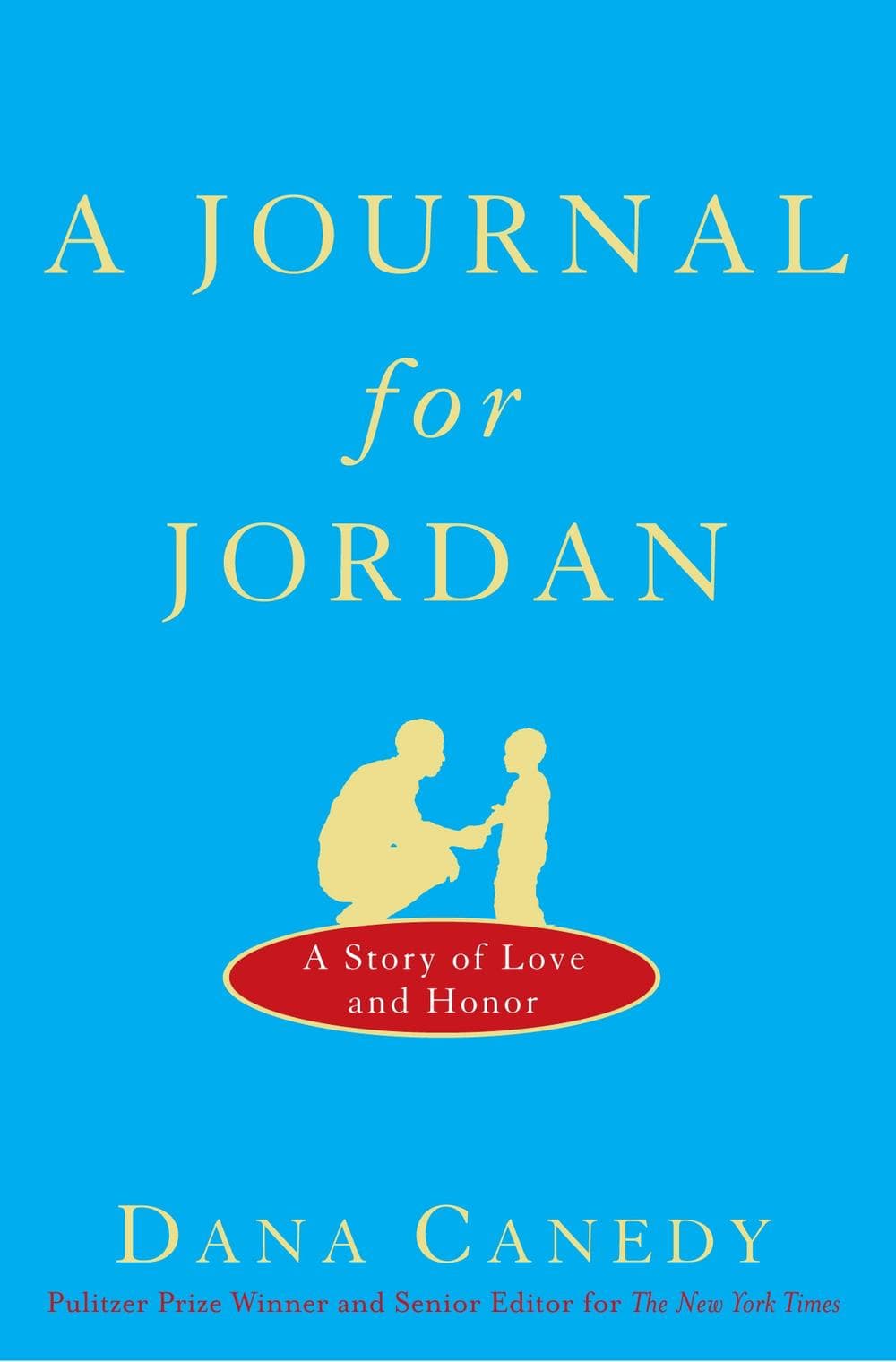Advertisement
Reading A Soldier's Journal, After His Death
ResumeIn 2006, Sgt. Charles King was killed by a roadside bomb in Iraq, just weeks after coming home to see his 6-month-old son Jordan for the first time.
Before he died, Sgt. King was writing in a journal his fiancé Dana Canedy had given him, but she had no idea he was doing it in case he didn't come home, so his son would have something to remember him by.
"He wrote about the beauty of rainstorms and rainbows. He told our son it was okay for boys to cry. He went in depth about why he loved me. It was just incredible," Canedy told Here & Now's Anthony Brooks.
Canedy turned the journal into a book called "A Journal For Jordan: A Story Of Love And Honor."
This story originally aired in January of 2009.
Book Excerpt: A Journal for Jordan
By: Dana Canedy
 You are just ten months old now, but I am writing this for the young man you will be. By then, you will know that your father was a highly decorated soldier who was killed in combat in October 2006, when a bomb exploded beneath his armored vehicle in Iraq. You were six months old.
You are just ten months old now, but I am writing this for the young man you will be. By then, you will know that your father was a highly decorated soldier who was killed in combat in October 2006, when a bomb exploded beneath his armored vehicle in Iraq. You were six months old.You will know that he left a journal for you, more than two hundred pages long, which he handwrote in neat block letters in that hot, terrifying place. What I want to tell you is how the journal came to be and what it leaves unsaid about your father and our abiding love.
Before he kissed my swollen stomach and left for the war in December 2005, your father, U.S. Army First Sergeant Charles Monroe King, had been preparing for the promise of your new life and for the possible end of his own. Even before he boarded that plane headed for danger, I worried that he would be killed. So I gave him a journal. I hoped he would write a few messages, perhaps some words of encouragement to you, though you were not yet born, in case he died before you knew each other.
We did a lot to prepare for the possibility that your father would miss out on your life, including finding out if you were a boy or a girl before he left; he was thrilled to have an image of you in his mind and kept your sonogram pictures in a pocket in his uniform the whole time he was in Iraq.
And then there was the journal. Writing it would be a way for your dad to help guide you through life if he did not make it home to us. He wanted you to know to pick up the check on a date, to take plenty of pictures on vacations, to have a strong work ethic, and to pay your bills on time. He wanted to tell you how to deal with disappointment, to understand the difference between love and lust, to remember to get on your knees and pray every day. Most of all, he wanted you to know how much he loved us.
So, late into the night in Iraq, after he had completed dangerous and often deadly missions, your dad returned hungry and exhausted to the relative calm of his room and wrote to you before he slept. His grammar was not perfect and his handwriting at times suggested that he was tired or rushed. But he put so much thought into the beautiful messages he wrote, things like:
Be humble about your accomplishments, work harder than the man next to you, it is all right for boys to cry. Sometimes crying can release a lot of pain and stress. Never be ashamed to cry. It has nothing to do with your manhood.
Your father mailed the journal to me in May 2006, shortly after one of his young soldiers was killed in an explosion eerily similar to the one that would claim his own life. He was so shaken after pulling the young man's body, piece by piece, out of a bombed tank that he sent the journal to me, unfinished. He had more to say, but that would have to wait until he came home on a two-week leave to meet you, six weeks before he died.
Copyright The Crown Publishing Group.
Guest:
- Dana Canedy, author of "A Journal For Jordan"
This segment aired on December 27, 2011.